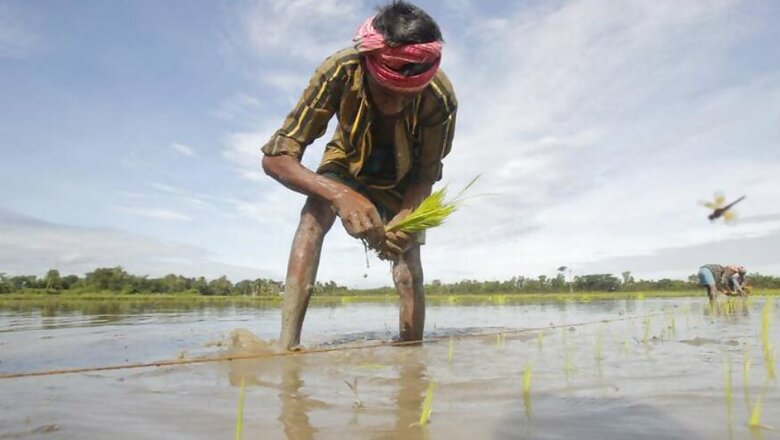Union Budget 2018 | Rich Farmers Should Also be Taxed, Says RSS-Inspired Chartered Accountants' Body

views
New Delhi: With the Narendra Modi government all set to present its last full Budget before the 2019 General Elections, an RSS-inspired group of chartered accountants has predicted that the Budget’s biggest announcement will be related to the farm sector. The group is also of the view that the government must tax agricultural income of high-net-worth individuals (HNIs).
“There are 30 crore PAN card holders in India while only 4 crore file income tax. What’s the harm in taxing agriculture income of HNIs? To start with, the government can tax individuals with an income of over Rs 1 crore per annum. Those earning more than Rs 1 crore from agriculture should pay tax,” said Anil Gupta, chief of Bharatiya Vitta Salahkar Samiti, an RSS-inspired body of chartered accountants.
However, this is not the first time that such a demand has been raised. The 2014 Tax Administration Reform Commission report stated, “Agricultural income of non-agriculturists is being increasingly used as a conduit to avoid tax and for laundering funds, resulting in leakage to the tune of crores in revenue annually.”
The government-appointed Vijay Kelkar Committee, in 2002, had also addressed the issue. The panel stated that states should be persuaded to pass a resolution authorizing the Centre to levy a tax on agricultural income that would then go to the respective states.
“It is the salaried class that is paying all the taxes, while the rich agriculturists are also making a lot of money. What wrong has the salaried class done to be the only ones to pay taxes?” asked Gupta.
Speculating on the big announcements that are expected, he said, “The biggest announcements will be for the farm sector, be it about policies on minimum support pricing, loan waiver, or otherwise.”
The NITI Aayog had on January 15, made presentations on its options to enhance agricultural productivity.
With eight states slated to go to elections next year, Niti Aayog members have agreed that it will have an impact on policy-making.
The proposed scheme on minimum support price (MSP) for farmers comes in the backdrop of the record harvest of cereals and pulses in 2016-17, which led to wholesale prices plunging below MSP.
The price crash led to protests by farmer groups across the country since June, with demands for remunerative crop prices and loan waivers.
While states such as Uttar Pradesh, Maharashtra, Punjab and Karnataka have announced farm loan waivers that are at different stages of implementation, states like Madhya Pradesh have launched their own price support schemes for farmers growing pulses and oilseeds.

















Comments
0 comment